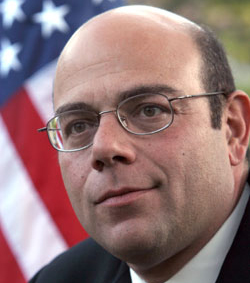BY GAREN YEGPARIAN
What’s going on in Nakhichevan? It worries me. Not the at-best-misleading “news” (several weeks ago) emanating from Azerbaijan that they took control of territory that had been in Armenian hands. Even if that were true, it would be an insignificant blip, and, it’s not true.
What worries me are more substantive issues. What’s happening with the population of the area. In one source, there’s a reference to its having grown from 307,200 in 1991 to 410,100 in 2011. That’s HUGE. Think about it, a one-third increase in the number of people in the span of less than one generation? But is it true? Or, equally, is it true that huge numbers of people fled that so-called “autonomous republic” after the Armenian side won in Artsakh? I recall some statistics that purported the region’s population had been halved as a result, but half of what?
Why does population matter anyway? The more people are there, the more that can be marshalled to arms should a conflict erupt on the Republic of Armenia’s southwestern flank where this now-devoid-of-Armenians region lays.
Turkey is the root of my concerns. Plans for a railroad connecting the Nakhichevan and Turkey have been put forth, but no action has been taken since 2012. That’s good news. But the very fact that a project such as this lingers and festering is cause for concern. A railroad would enable faster delivery of military needs to our enemies in case of a conflict. As it is, the Turkish military is said to have an actual presence in Nakhichevan. This is hardly a surprise. Couple this with the incident referenced above when Azerbaijan took some action, perhaps the real intention was to probe for Armenian weakness. That was not an isolated incident. Every so often, they take such action. But the Turkish presence there is “unofficial” since formalizing such a condition would intrude on Russia’s perception of its space. Despite this, Turkish media occasionally report plans to build a Turkish base in Nakichevan. This, too, is likely a probe to see what reactions are elicited.
All this is possible because of a land swap between Iran and Turkey under the Tehran Convention, of 1931. This gave Turkey an 11 mile (18km) common border with Nakhichevan. Ostensibly, this came about as a result of the Kurdish rebellion that preceded it. Because Kurds were crossing the border from Iran, Turkey wanted a more controllable border. Even an Armenian source cites this. Supposedly, the land swap was not to gain a common border with Nakhichevan for pan-Turkic reasons. But it baffles me why people cannot conceive that Turkey wanted the land swap for both reasons – the Kurdish and Nakhichevan benefits it bestowed.
Of course the pan-Turkist Kemal Ataturk would not publicly state the Nakhichevan angle. Would you? But it is what anyone with that expansionist, Turkist mindset would do. It’s completely rational.
Meanwhile, a border wall between Iran and Turkey is under construction by the former and was scheduled for completion in Spring of 2019. I do not know what to make of this. Supposedly, Iran welcomes its construction, but I don’t see why it would. That’s very shortsighted and Tehran usually thinks very long term.
We must heighten our awareness of Nakhichevan. Happily, Yerevan officialdom seems to be aware of the importance of this front. But more public, especially Diasporan, awareness is important so that if the time should come when trouble starts, we can be of more assistance. Also, it would help us spread the word in government circles worldwide that Turkey likely has nefarious plans for the Republic of Armenia via Nakhichevan.
Let’s start reading and spreading more news about the place-of-the-first descent (of Noah’s ark) as the region is named (Nakh-eech-e-van).




















































